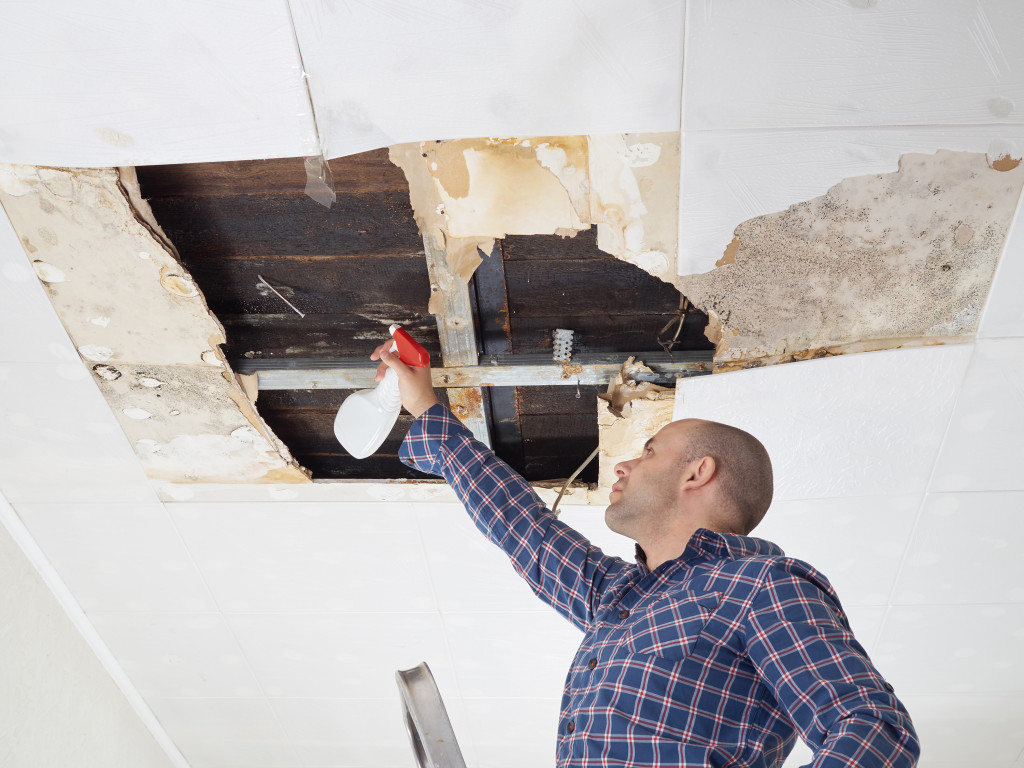Moisture is often thought of as being nothing more than a nuisance. However, many people don’t realize that it can cause damage to their homes. If left unchecked, moisture can lead to mold and mildew, weakening the structural integrity of your home and creating an unhealthy living environment. Here are some ways moisture can ruin your dream home.
Mold and Mildew Growth
Mold and mildew thrive in moist environments. If you have excess moisture in your home, it’s only a matter of time before mold and mildew start to grow. Not only do mold and mildew look unsightly, but they can also cause health problems for you and your family. In addition, mold and mildew can weaken the structural integrity of your home by causing wood rot.
Damage Your Home’s Foundation
One of the most critical parts of your home is the foundation. The foundation supports the entire weight of your house, so it must be solid and stable. Unfortunately, moisture can damage your foundation, causing cracks and other problems. If left unchecked, these problems will only worsen over time, potentially leading to the collapse of your home.
Attract Pests
Another problem that can be caused by moisture is an infestation of pests. Many pests, such as termites and carpenter ants, are attracted to moist environments. If you have moisture in your home, it’s only a matter of time before pests start showing up. Not only are pests a nuisance, but they can also cause damage to your home.

Telltale Signs of Moisture in Your Home
If you want to avoid the problems above, you need to know when moisture has started damaging your home. Here are some telltale signs of moisture in your home:
Water Stains on the Ceiling
One of the first signs of a moisture problem is water stains on the ceiling. While minor stains might not seem like a big deal, they’re a sign of a severe issue. Leaks in the roof or walls cause water stains; if left unaddressed, those leaks will only worsen. Over time, they can lead to structural damage, mold growth, and even insect infestations. So if you see water stains on your ceiling, it’s essential to have a professional inspect your home for leaks as soon as possible.
Musty Smells in the Closet
Another telltale sign of moisture problems is musty smells in the closet—or any other room in the house, for that matter. Musty odors are caused by mold spores, which thrive in damp environments. If you notice musty smells in your home, it’s essential to address them right away. Otherwise, you risk health problems like respiratory issues and headaches. Not to mention, mold can cause extensive damage to your home if left unchecked.
Mold in the Bathroom
Speaking of mold, the bathroom is one of the most common places to find it. That’s because bathrooms are typically damp due to all the humidity from showers and baths. If mold is found in your bathroom (or any other room in your house), it’s essential to remove it as soon as possible. However, mold removal can be tricky, so it’s best to leave it to the professionals.
As you can see, moisture can be more than just a nuisance—it can be dangerous. If you think you might have a moisture problem in your home, it’s vital to take action. Here are some ways to deal with moisture damage in your home:
Professional Help
Professionals can help you deal with any damage caused by your home’s moisture. A water removal service can help with any water damage in your house. They can even prevent future moisture damage. By hiring a professional contractor to take care of moisture problems in your home, you’ll rest easy knowing that the issue has been taken care of properly.
Home Improvements
If you want to prevent moisture from damaging your home, you can make some improvements on your own. Here are three home improvements you need to do:
Insulation
One of the best ways to reduce moisture damage is to install quality insulation. Insulation prevents moisture from entering your home by keeping the heat inside. With good insulation, you can keep moisture at bay and avoid water damage in the long run.
Dehumidifier
You should also consider installing a dehumidifier in your home. A dehumidifier pulls moisture out of the air, which helps prevent mold growth and other humidity-related issues.
Ventilation System
Another thing you need to do is install a ventilation system in your home. This will help reduce excess humidity by allowing fresh air to enter your house without increasing moisture levels. Ventilating your home might require work, but it’s worth it when you want to protect yourself from moisture problems.
As you can see, there are many things you can do to deal with moisture damage in your home. You can prevent moisture problems and keep your house safe for years by taking the proper steps and hiring professionals when necessary. This can help you save money and time in the long run.
